What did you use to do during recess?
During third grade recess, I used to read scenes from Romeo and Juliet out loud with my friend Mariana—could we understand it? Not really, but we could feel it was beautiful and dramatic. I remember getting the chills from these lines “O brawling love! O loving hate! / O anything, of nothing first create! / O heavy lightness! serious vanity! / Misshapen chaos of well-seeming forms! / Feather of lead, bright smoke, cold fire, sick health!” I could tell you now all of the poetic reasons—paradoxes! spondees!—but then I just loved what it did in my mouth and my brain.
Around this time, I remember pulling up soft stem rushes and braiding them together, grinding bricks with a rock to “make paint,” hammering a giant block of quartz in my friend’s yard (we planned to make a necklace for her aunt from the chips that flew off). There was something deeply appealing to these forms of effortful, endless work that reached into imagination. We also set up plastic horse dioramas along the creek behind her house and invented dramas where a new stallion joined the herd and unsettled the balance of power and romance. I was always covered in blackberry scratches.
Tell us about a day in your life, how do you fit in creative moments?
I’m a creative writing professor and undergraduate chair at University of British Columbia in Vancouver, and my days vary: in-term versus summer, early semester versus late, teaching day versus non-teaching day. I like the rhythms of the academic year with its built-in resets. At least three times per year, I have a new beginning, a different schedule, a shifted shape to my days, a chance to weigh what’s working and what isn’t.
A busy day in the fall might look like this: go to the gym to lift weights, shower, drink coffee, braid my daughter’s hair, bike to my office on campus, work for an hour on the creative writing pedagogy book I’m co-writing with a colleague, open my email and respond to a bunch of questions from students in my big poetry lecture class, meet with an MFA thesis student over Zoom to talk about her new poems, finish and upload a report for the next unit meeting, review drafts from students in my grad class and finalize class plans while I eat lunch, teach graduate poetry for two hours, meet with students after class to give craft reading recommendations, go host a poetry reading at Green College from 5 pm to 7 pm, eat dinner with the poet and some students and colleagues, bike home and slip in to kiss my kids who are reading in bed.
During periods like this, I try to keep a small pocket dimension at the start of my time in the office—before I open email or face the to-do list—to focus on creative work. This can take two forms:
Sometimes I’ve mapped out the next step of a project—drafting or revising or generating material—and I try to drop into it right away.
Sometimes it’s more a matter of holding space clear of some things (email, grading, etc.) and available to other things (I’ve made a list!) and just seeing where I feel a pull.
During summer, I insist on both . First an hour of non-goal-driven play and then usually two to four focused hours on my main project. Afternoons are for everything else, email, reading, writing a recommendation letter, commenting on a thesis, meeting with the undergraduate advisor about the new student registration system, and sometimes running off to jump in the ocean.
Two other things:
While writing is my main creative practice, it’s not the only way I fit in creative moments. During periods when I barely have time to write, I might still knit a green baby hat while watching TV with my kids, or try out a new recipe from the wok cookbook I checked out from the library, or make paper envelopes out of old calendars with my daughter.
I’ve recently started scheduling a three-night mini retreat every few months with a friend. We go to Getaway cabins just across the border in Washington, and I completely shut down all email/internet/social media and just write and read and take walks and eat snacks. Recently, I’ve picked a single project to immerse myself in as deeply as I can. A lot can happen in two full days with no interruptions and no responsibilities!
What do you do when you feel burnt out or filled with doubt?
Sleep! These feelings are usually worst when I’m tired. I try to talk to myself really kindly to counter whatever cruel way I’ve slipped into talking to myself in my head without noticing. I might also reach out to a writer friend and just say, “I’m feeling like this project might not amount to anything” or “Maybe I’m not actually skilled enough to pull this off”—someone who gets it and knows not to rush in with immediate reassurances but instead to help me regain a sense of perspective. They remind me that these feelings are an inevitable part of a process we’ve both gone through before.
I’ve noticed that often when I feel doubts about writing, I’ve been scrolling and skimming through a project without latching onto a specific passage. When I make myself actually slow down and work at the level of the sentence, I get a more real sense of what’s working and what I might fix. I’m in it again, not outside judging.
Click to listen to Ada Limón read and discuss one of Bronwen’s poems!
What’s your favorite super easy creative practice to do when you’re looking for fresh ideas?
As a teacher, I have many of these!
A current favorite is writing poems on my office typewriter (no delete! not “in the cloud”!) following (and resisting) a set of constraints. I’ve done versions of this kind of thing for years, but this particular one riffs and expands on a set of “moves” Becca Klaver shared. I have an envelope full of folded slips of paper with things like “what is known,” “an ordinary fear,” “image from a tarot/oracle deck,” “sound-play with the live above, focusing on repeated sounds,” “bold declaration (never, always, only, all none),” etc. I draw 10 slips at random and open them one at a time, writing in this direction as I go. I see the resulting “poem” as more like material than draft: it’s not something I plan to polish up and finish but rather something I make a big pile of and then mine for parts. I often get at different (less expected, more specific) things using this constraint-based approach than I do if I just tell myself “sit down and write something.”
What do you hope your kids will learn about creativity from you?
Everyone in my house does creative work, and I learn so much from my kids and partner. For both my students and myself, I often feel a need for “unlearning,” getting closer to a relationship to creativity and making that kids so easily slip into. I see that when my son tirelessly remakes a Lego build five times to get a spaceship wing to bend the way he wants without questioning his ability or getting frustrated with the process. I see it when my daughter says, “I don’t know what to draw,” and then is already moving her pencil with an idea before she fully gets the words out of her mouth.
But here’s what I hope they learn from me:
That you don’t have to be tortured to make art.
That art is integrated into life, not separate from it—as C.D. Wright put it, “The popular perception is that art is apart. I insist it is a part of”—and that any ordinary life can be a source of and space for art. That anything they care about or wonder about can feed a creative practice.
How a problem can become part of the work.
That whether creative work is recognized and validated externally often has as much to do with connections and luck as it does with the quality of the work.
The pleasure of doing creative things even when we’re unskilled at them (I think they pick this up when they see me practice guitar or try to draw!).
That developing skill and bringing our full powers of attention and capacity to creative work is deeply satisfying, no matter what becomes of that work.
The long road from idea to completion and how we need stamina and community to see it through.
That we can step away and come back.
That it’s not just OK but necessary to be our weirdest, most particular, selves.
If you could give everyone a small treat, what would it be?
My summer treat this year has been matcha and other tea powders from Paragon Tea Room in Vancouver where I live. What I’d like to give everyone is not just these teas themselves—though they’re delicious—but also the time and space (and the ideal tools, the little round bowl and bamboo whisk) such that pausing in the middle of creative work to heat the water and measure the tea powder and whisk them together can feel meditative and calm and caring, like a real break.
What mothers inspire you? Who should I interview next?
So many! My friend and collaborator Elee Kraljii Gardiner offers me a hopeful example of relationships with adult children that blends freedom and closeness. I love how Joy Harjo and Catherine Newman write about mothering, that focus on being in relationship rather than solving or fixing or controlling. My friend Anna Farro Henderson’s Core Samples: A Climate Scientist’s Experiments in Politics and Motherhood is coming out this fall, and she’d be a great person to interview.
Bronwen Tate is the author of the poetry collection The Silk the Moths Ignore and the mother of Gen (12) and Vesper (almost 9). She is Undergraduate Chair in the School of Creative Writing at UBC in Vancouver, where she offers courses in poetry, creative nonfiction, literary translation, and the teaching of creative writing. In collaboration with UBC colleague John Vigna, Bronwen is co-writing a creative writing pedagogy book under contract with Bloomsbury Academic. You can find Bronwen on Instagram at @bronwentate and at Substack.
If you enjoyed this post, please forward it to your favorite creative mothers. And if you’re a writer on Substack, consider recommending Nebula Notebook, so your readers can join this warm community too.
PS—The fastest way to grow as a writer is to book a manuscript critique or a creative coaching session with an expert.
My clients get agents, sell books, and win awards. They also learn how to find ease and joy in the creative process, so they can keep going when life gets hard.





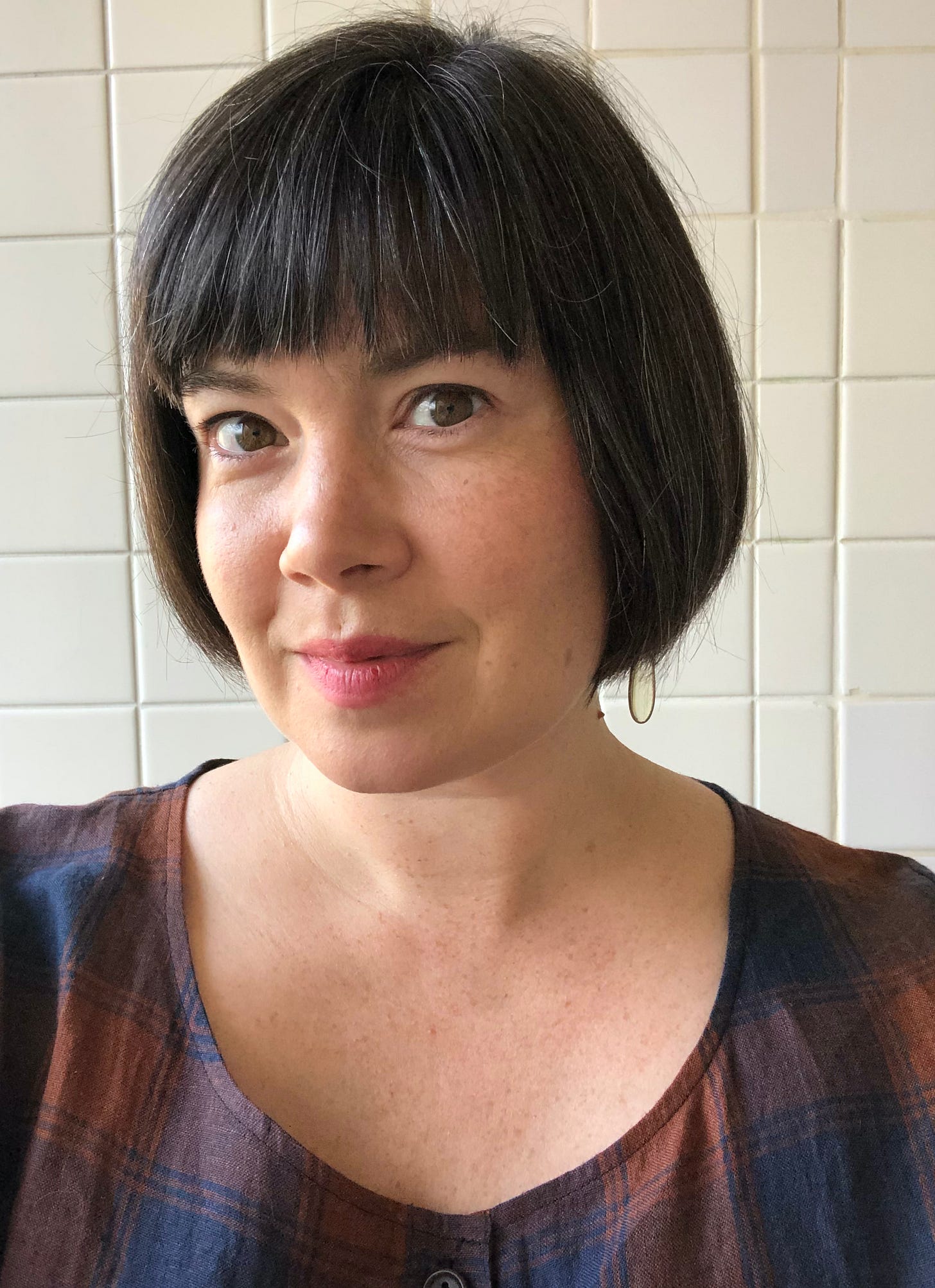
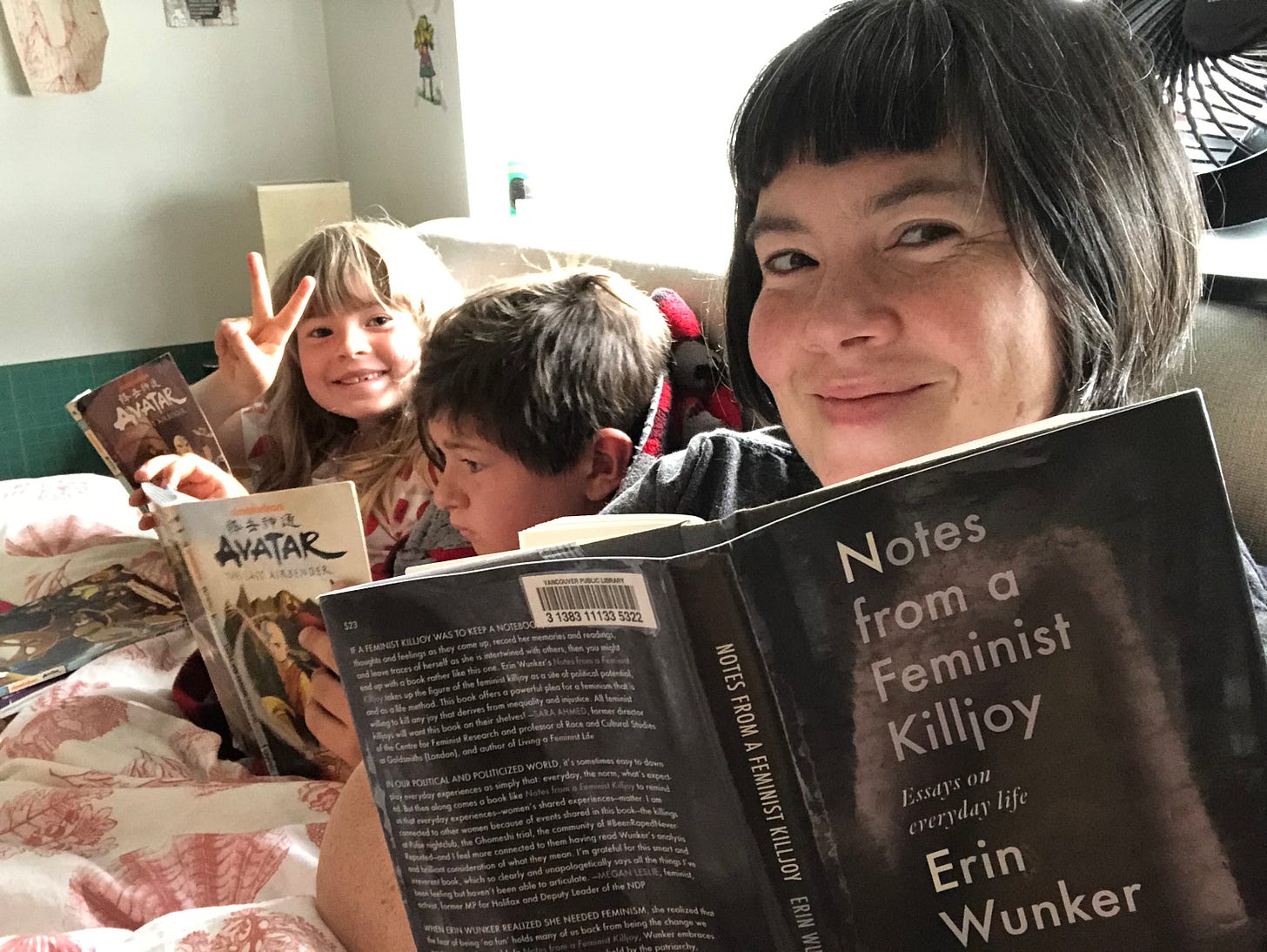
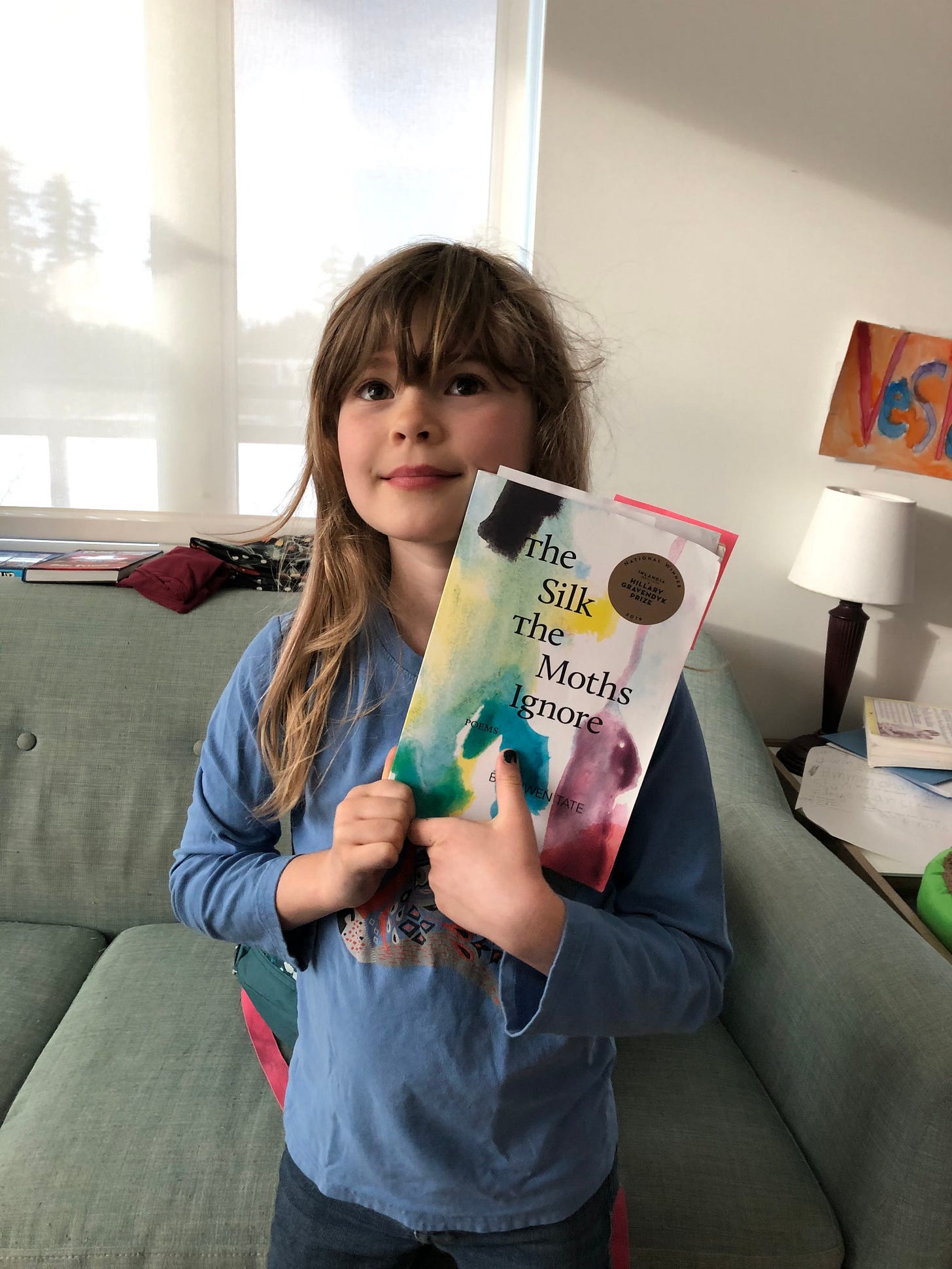
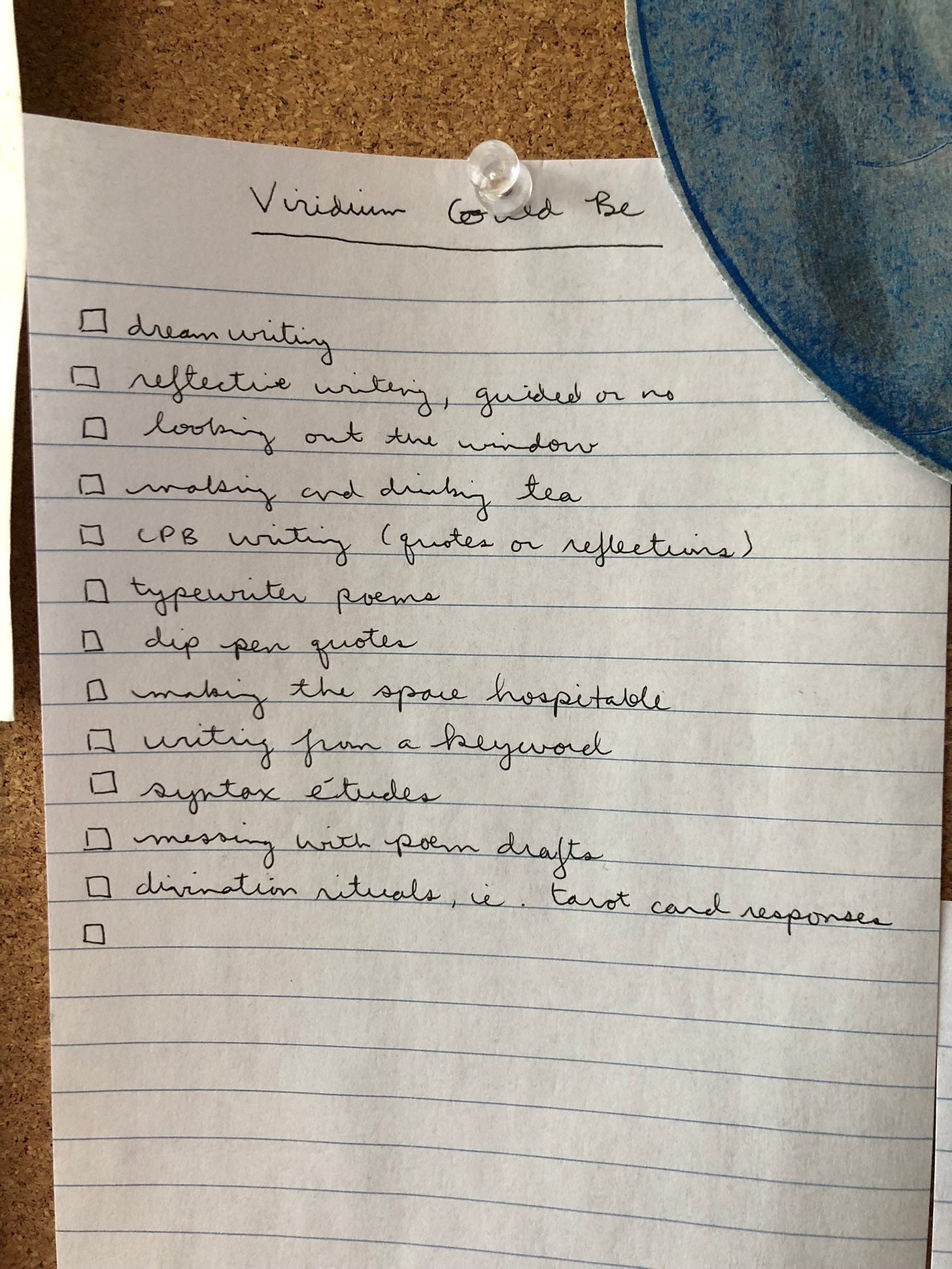
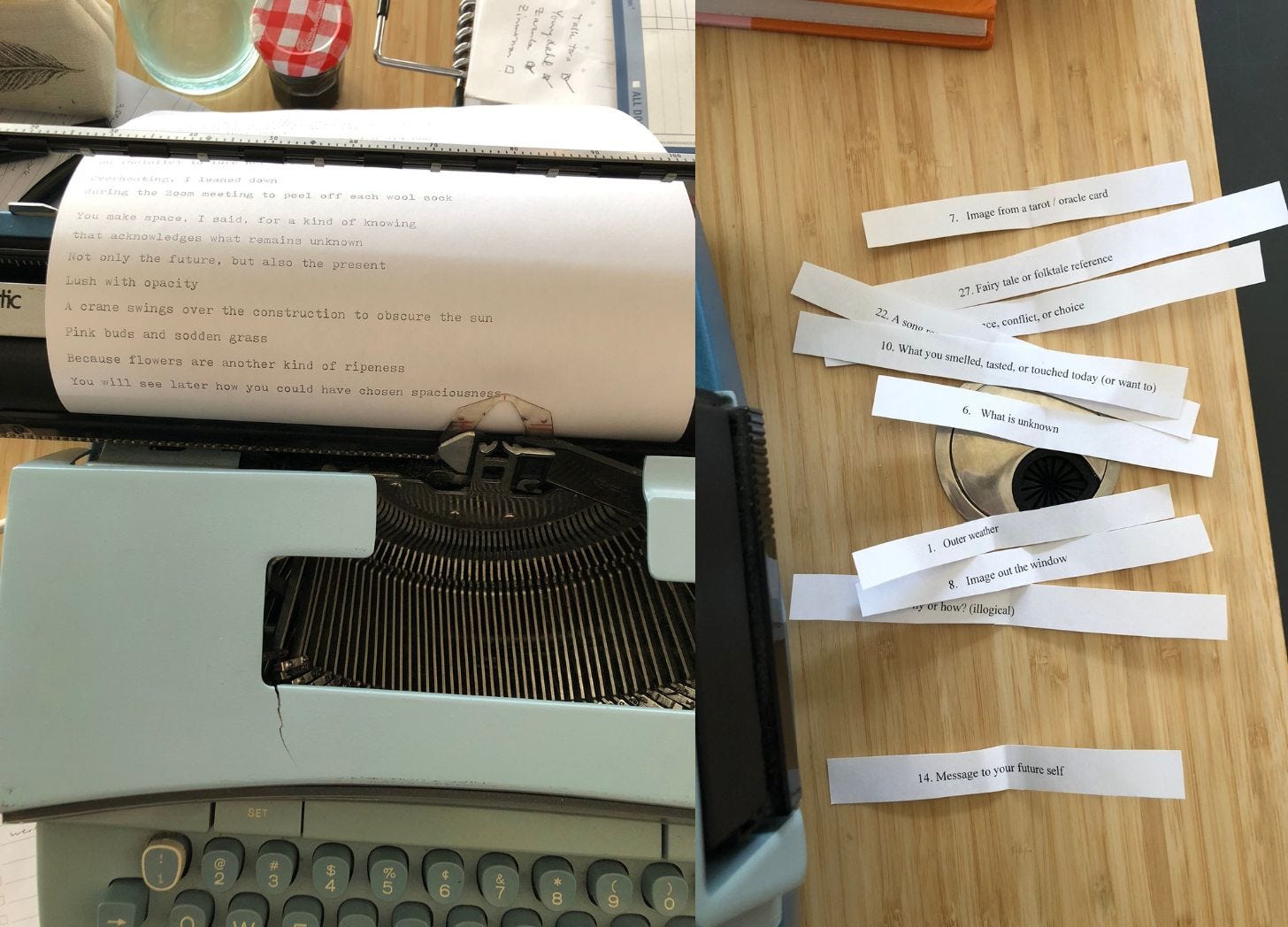
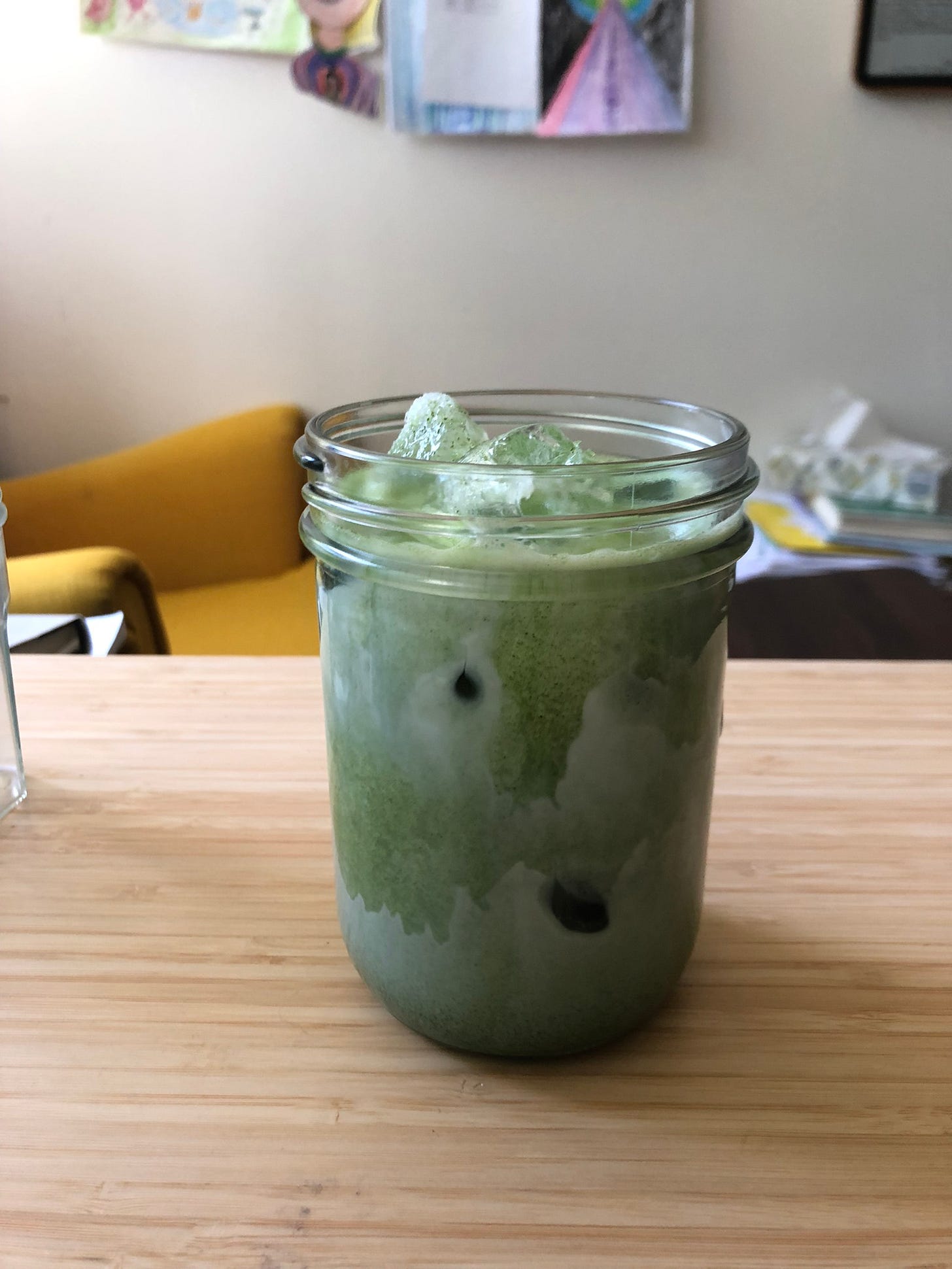
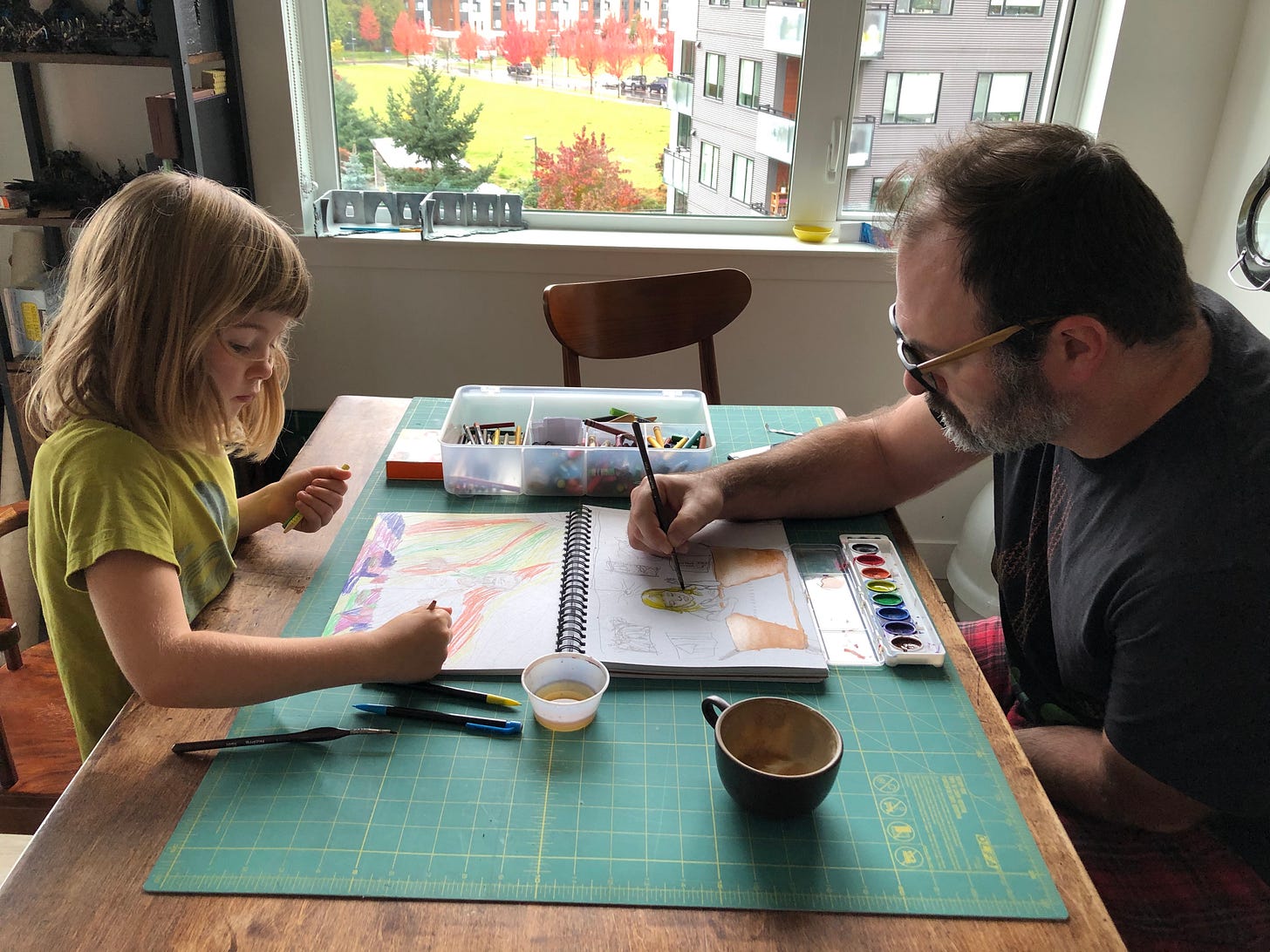


Totally looking into that Getaway location for my next solo writing retreat! Thanks for sharing, Heidi and Brownwen 💕